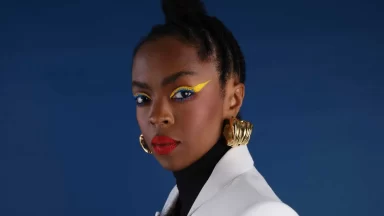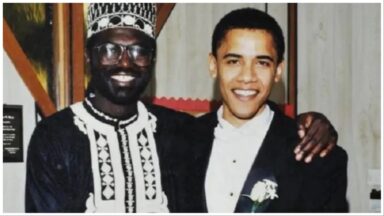OPINION: The Grammy-winning pianist/producer’s ‘Black Radio’ series and his work with rappers blurred the lines of Black genres over the past decade
“The reality is that my people have given the world so many styles of music; we have so many different styles. So should I just confine myself to one of them? We want to explore them all.” – Robert Glasper, 2016
An experiment is defined as a procedure that tests a hypothesis, demonstrates a known fact, or makes a discovery. Robert Glasper’s gathering of musicians Derrick Hodge, Chris Dave, Casey Benjamin, Mark Colenburg in the 2010s was that procedure. The known fact that they were proving is that Black music has no boundaries. The hypothesis they were testing was that this fact would permeate 21st century music practices and institutions.
Jury finds officer connected to Breonna Taylor shooting case not guilty
On February 28, 2012, jazz pianist Robert Glasper and his electric quartet, The Robert Glasper Experiment, released Black Radio. The Blue Note album featured guest appearances from Lalah Hathaway, Yasiin Bey, Lupe Fiasco, and Ledisi. An electric hothouse of eclectic influence and artistic curiosity, it expanded on the traditional notions of what a jazz musician can do.
Ten years later, nearly to the day, Glasper released Black Radio III. Boasting an all-star cast of guests like Killer Mike, Musiq Soulchild, Common, D Smoke, and Jennifer Hudson, it is a coronation of a career that has not only expanded the profile of Glasper but also erased rigged expectations and limitations of what Black music can be.
What transpired in between these recordings has helped usher in a new renaissance of Black American music. In a time when major labels’ monopoly on artistic output was dwindling, the era was ripe with needs to shake up Black music.
Glasper, his band, and contemporaries like Terrace Martin, Keyon Harrold, Stephen “Thundercat” Bruner, and others have set a new standard of genre fluidity, re-emphasizing the power of live instrumentation.
Glasper is a Houston-based jazz pianist with an affinity for hip-hop and R&B, and the chordal aesthetic of a gospel musician. Through his close friendship with vocalist and New School classmate Bilal, he was able to find his place within the Soulquarian camp in the early 2000s. He formed a relationship with Common and J Dilla, absorbing the energy of one of the most pivotal eras in Black music history, fusing hip-hop with various genres.
Source: The ‘Black Radio Effect:’ How Robert Glasper helped manifest genre fluidity in Black music



Recent Comments